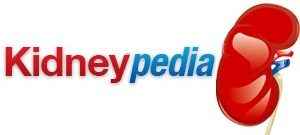With obesity on the rise worldwide, kidney disease is becoming an increasingly prevalent problem. Though many people are unaware of the relationship between obesity and kidney disease, with obesity comes both high blood pressure and diabetes, and both can damage the kidneys. The kidneys are small organs that do a big job; they are one of the body’s most important cleaning mechanisms, working to filter out excesses of calcium, phosphorous, potassium and sodium from the blood. Once the kidneys have been damaged and you have been diagnosed with Chronic Kidney Disease it is essential that you alter your diet and cut down on all of the things that your kidneys would previously have filtered out for you.
Potassium is high on that list. Before you got sick, when your kidneys were working properly, they were preventing you from having the symptoms that come along when you have too much potassium in your blood stream –
Foods High in Potassium
Almost all foods contain potassium, but some are more dangerous for those with chronic kidney disease (CKD) than others. Although it is important to stay away from high potassium foods, it is also essential that you remember that if you eat too much of a low potassium food, you are still eating a lot of potassium, and that is just as dangerous.
There is a long list of foods that you need to stay away from if you have CKD, and they include fruits such as apricots, bananas, honeydew and mango, vegetables such as black beans, raw carrots, cooked broccoli and tomatoes, chocolate, yogurt and nuts and seeds of all kinds, including peanut butter. Because a kidney diet often requires that you cut down on sodium, you may be tempted to use salt substitutes, but don’t –
Foods Low in Potassium
There are a number of foods that are low in potassium that you can eat on a regular basis, but again, it is essential that you remember that if you eat more than a serving of any of these (a serving is considered half a cup) then you have converted a safe food into a dangerous food. Sticking to the proper portions of low potassium foods will enable you to eat a healthy and enjoyable diet. The foods that are low in potassium include fruits such as apples, blueberries, cherries, peaches and watermelon, vegetables such as asparagus, cucumber, lettuce, fresh mushrooms and peas, and other foods such as pasta, rice and potatoes. Bread products are fine, as are cookies as long as they don’t contain chocolate or nuts.
Supplements for Low Potassium Diets
Because those who have been diagnosed with Chronic Kidney Disease are required to stick to a low potassium diet, they sometimes end up malnourished from having cut out so many healthy foods. If you are concerned that you are not getting all of the healthy minerals that you need while eating a low potassium diet, there are supplements available specifically for those who are on a renal diet.
Leaching High Potassium Foods
If you are diagnosed with Chronic Kidney Disease and are eating a low potassium diet, but crave the foods that are on the list of those you can’t eat, you are able to follow a process called leaching which will allow you to eat some of the high potassium foods that you are missing. This is not something that can be done with all high potassium foods, but there are some that it works for.
For starchy vegetables such as potatoes, beets and carrots, you can peel them, slice them thinly, then soak them in water for a minimum of two hours. It is important that you use at least ten times the volume of water compared to the vegetables, and you have to change the water every four hours if you are soaking for a long time. After soaking, dump the water, then boil the vegetables until they are tender using at least five times the volume of water compared to the vegetables. The same process can be done with frozen vegetables and softer vegetables like mushrooms and squash. Remember, the leaching process only reduces the amount of potassium; it doesn’t remove it entirely. If you eat too much, it will turn a small amount of potassium into a high amount, and you run the risk of getting sick.
